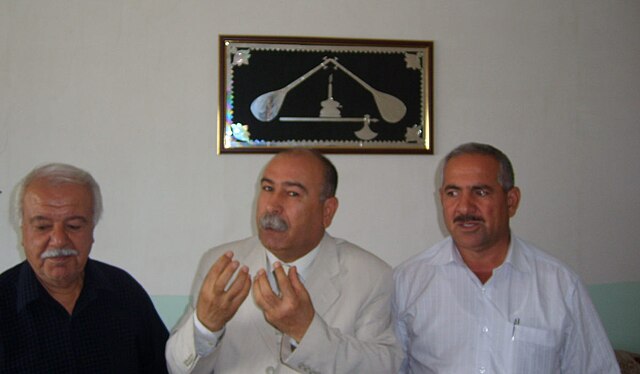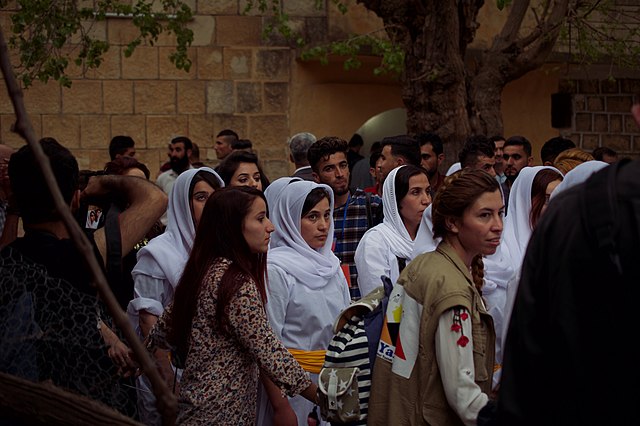Yarsanism, Ahl-e Haqq, or Kaka'i, is an inherited, syncretic religion founded by Sultan Sahak in the late 14th century in western Iran. The total number of followers of Yarsanism is estimated to be over half a million to one million in Iran. The numbers in Iraq are unknown. Followers are mostly Kurds from the Guran, Sanjâbi, Kalhor, Zangana and Jalalvand tribes. Turkic-speaking Yarsan enclaves also exist in Iran.
Yarsan shrine of Shah Hayas in the village of Wardik near Mosul in Iraq
The Tambur is a sacred symbol of Yarsanism and is played during religious ceremonies.
Yarsani men in Silêmanî, Iraqi Kurdistan. The picture on the wall is of the Kurdish tanbur, a Yarsani religious symbol.
The Holy Tomb of Dawoud is one of the sacred shrines of Yarsinism
Kurdish people or Kurds are an Iranic ethnic group native to the mountainous region of Kurdistan in Western Asia, which spans southeastern Turkey, northwestern Iran, northern Iraq, and northern Syria. There are exclaves of Kurds in Central Anatolia, Khorasan, and the Caucasus, as well as significant Kurdish diaspora communities in the cities of western Turkey and Western Europe. The Kurdish population is estimated to be between 30 and 45 million.
Kurdish-inhabited areas in the Middle East (1992)
Yazidi new year celebrations in Lalish, 18 April 2017
Ṣalāḥ ad-Dīn Yūsuf ibn Ayyūb, or Saladin, founder of the Ayyubid dynasty in the Middle East
Kurdish warriors by Frank Feller








